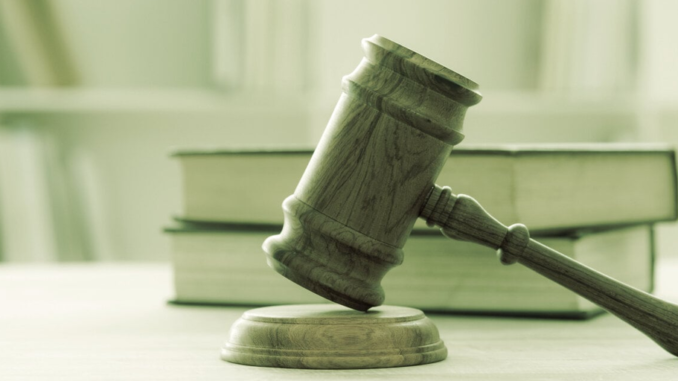
A federal judge in Pasadena, California, earlier this week denied a series of motions attempting to excuse members of the bZx DAO from liability in a novel class action lawsuit filed against the decentralized autonomous organization.
The ruling means a court has found that simply owning a token could create legal liability for holders, sending shockwaves throughout the crypto community as traders, investors, and other enthusiasts grapple with the potential implications.
While the ruling did not definitively find members of the bZx DAO liable for any wrongdoing (a judgment is still forthcoming), some industry experts framed the move as an unexpected escalation of hostility against DAOs, which aim to leverage blockchain networks to create a decentralized alternative to traditional company structuring.
“It means that they feel there is some grounds for the case that a DeFi app with a DAO structure could extend legal liability to anyone who simply holds the token in certain circumstances—and that argument merits more discussion in court,” prominent crypto investor Adam Cochran tweeted of the ruling on Monday.
2/4
Dismissing the motion does not mean the court decided that owning the token makes you 100% liable – yet.
It just means they refused to take it off the table. Which is honestly surprising.
— Adam Cochran (adamscochran.eth) (@adamscochran) March 28, 2023
“Random degens voting in a DAO can be considered liable for what a DAO does,” tweeted Nick Almond, founder of FactoryDAO, a DAO that helps create tooling for other DAOs.
Yes this defines a DAO as a general partnership and makes everyone, including token holders jointly and severally liable for the what happened in the DAO. This is the main bad news. Random degens voting in a DAO can be considered liable for what a DAO does.
— drnick 🗳️² (@DrNickA) March 28, 2023
But is there a reason to panic? Are DAOs now dead-on-arrival as an organizational structure? Can anyone holding a governance token now be held legally liable if the token’s corresponding DAO is ever sued? The answer, like most things in crypto, is not quite so simple—but not so optimistic either.
“I mean, it’s not good for DAOs,” attorney Jeremy S. Goldman, who specializes in blockchain technology-related litigation, succinctly put it to Decrypt. “The decision crystallizes the fact that we don’t live in a decentralized world. DAOs challenge [traditional business] structures, and our [legal] system. That’s what you’re seeing, potentially—an inherent incompatibility of those two ideas.”
In terms of the specifics of the class action, the court has ruled that the suit’s plaintiffs, victims of a 2021 hack that drained bZx—a DeFi lending protocol—for $55 million, will be allowed to proceed in suing not just bZx’s leadership but also the myriad token-holding members of the bZx DAO. The bZx DAO began running operations for the bZx DeFi protocol in late 2021.
The Commodity Futures Trading Commission similarly found that membership in the bZx DAO, defined by ownserhip of tokens and participation in governance votes, could expose individuals to legal liability when it fined the DAO’s founders $250,000 for allegedly illegally offering “retail commodity transactions” in September.
That’s not to say, though, that this week’s ruling was a red-hot legal curveball lobbed to destroy a cornerstone of Web3 tooling, and at a time when the American government may appear to crypto proponents as hellbent on stopping crypto development in its tracks.
“This didn’t come as a surprise to anyone who understands what a DAO is, or how partnership law works in the United States,” Goldman said.
Why? As U.S. District Judge Larry Alan Burns repeatedly highlighted in his ruling, bZx cofounder Kyle Kistner explicitly stated on public calls that the benefit of transitioning bZx from a company to a DAO would be insulating the organization from government oversight and securities-related legal actions.
“When regulators ask us to comply, we [will] have nothing we can really do, because we’ve given it all to the community,” Kistner said at the time, according to court documents.
Judge Burns therefore found bZx, even in DAO form, to constitute a valid general partnership— meaning its token-holding membership is personally liable for lawsuits against the organization under U.S. law. BZx appeared to him as a company in DAO’s clothing.
“They traded a securities problem for a partnership problem,” Goldman said. “The SEC didn’t go after them. The CFTC did.”
As an organization attempting to offer financial products in the United States, bZx has found it can’t have its cake and eat it too. Refusing to register as an LLC—the oldest trick in the book for avoiding personal liability in American business—while also engaging in profit-based digital commodity transactions, inevitably led to a situation where DAO members were exposed to an unnecessary amount of legal liability, according to Goldman.
While that may be devastating news to DAO purists, it doesn’t necessarily hinder the ability of DAOs to do what they purport to do best: enable the decentralized operation of a business or organization.
A DAO could still token-gate its membership, distribute voting power via tokens, and take blockchain-verified votes on governance proposals while also registering with federal authorities in a manner that would prevent potential legal liability if ever sued. Legal scholars have previously outlined numerous ways in which a DAO could safely navigate the American legal system.
“So what if there’s an entity? So what if there’s some element of centralization? Why is that so bad?” Goldman said.
In that sense, this week’s ruling underscores the broader reality check currently facing crypto, as the novel industry is absorbed by existing state structures. Decentralized tools like DAOs may well find a path forward in the United States and beyond—but likely not without making some concessions to the reality of existing in a centralized world.





Be the first to comment